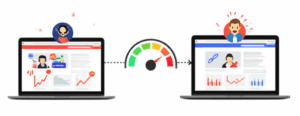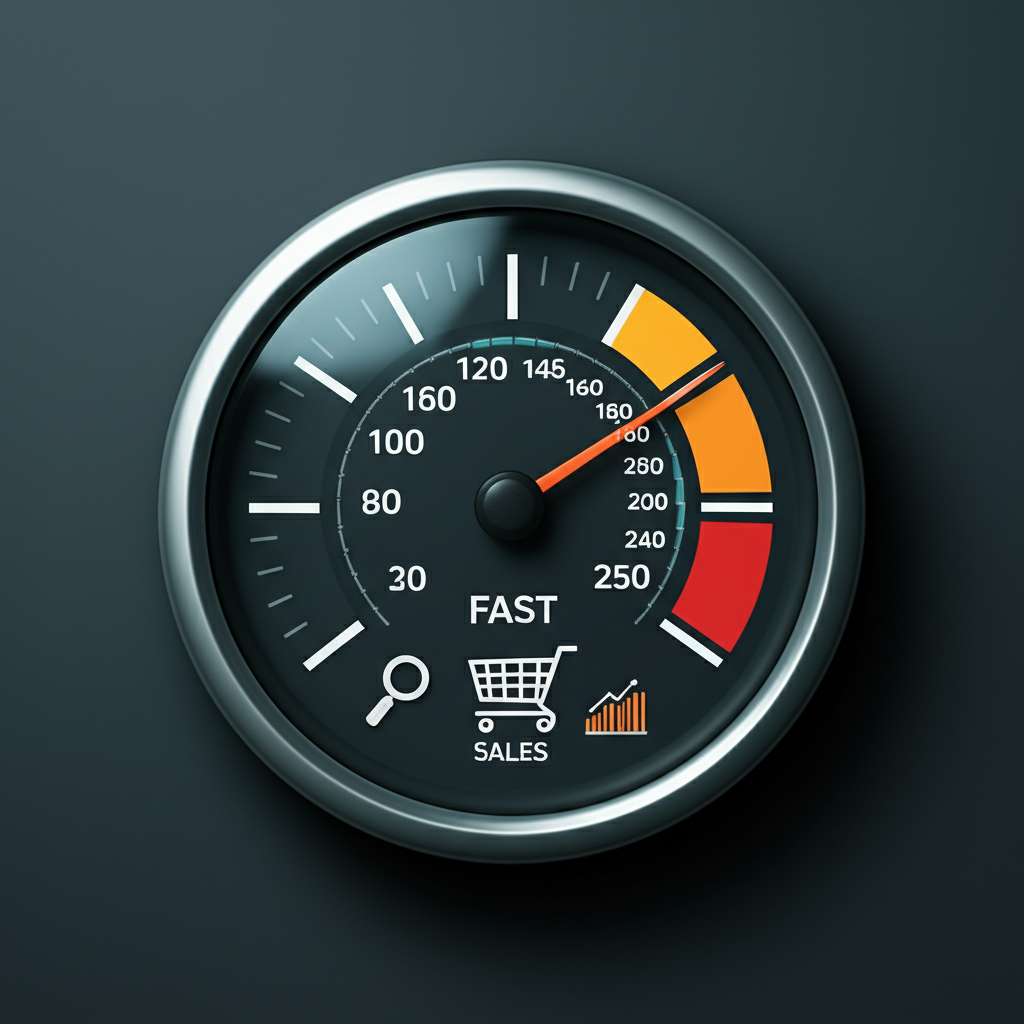- Why Website Speed Matters for SEO
- Impact of Website Speed on Search Rankings
- Mobile-First Indexing and Website Speed
- How Website Speed Affects Sales
- The Impact of Slow Loading on User Behavior
- Boosting Conversions with Improved Website Speed
- Optimizing Your Website Speed: A Practical Guide
- Image Optimization for Faster Loading
- Leveraging Browser Caching
- Minimizing HTTP Requests
- Choosing the Right Hosting Plan
- Utilizing Content Delivery Networks (CDNs)
- Website Speed: The Key Takeaway
Website Speed: Crucial for SEO & Sales
Website speed is a critical factor for both search engine optimization (SEO) and sales. In today’s fast-paced digital world, users expect websites to load quickly and efficiently. A slow website can lead to a poor user experience, which can negatively impact your search engine rankings and ultimately, your bottom line. This article will delve into the importance of website speed, its impact on SEO and sales, and provide actionable strategies to improve your website’s performance.
Why Website Speed Matters for SEO

Google and other search engines prioritize user experience. A slow-loading website contributes to a negative user experience, signaling to search engines that your site isn’t providing optimal value. Consequently, your website may be penalized with lower search rankings, making it harder for potential customers to find you.
Impact of Website Speed on Search Rankings
Website speed is a confirmed ranking factor for both desktop and mobile searches. Google’s algorithm considers loading time as a crucial metric, influencing where your site appears in search results pages (SERPs). A faster website is more likely to rank higher, leading to increased organic traffic and visibility.
Mobile-First Indexing and Website Speed
With the rise of mobile browsing, Google has adopted a mobile-first indexing approach. This means Google predominantly uses the mobile version of your website for indexing and ranking. Given the limitations of mobile networks, website speed is even more critical for mobile users. A slow mobile site can significantly hinder your rankings and deter potential customers.
How Website Speed Affects Sales
Beyond SEO, website speed directly impacts your sales and conversion rates. A slow website can lead to user frustration, higher bounce rates, and ultimately, lost revenue.
The Impact of Slow Loading on User Behavior
Studies show that even a one-second delay in page load time can result in a significant decrease in conversions. Users are impatient, and if your website takes too long to load, they are likely to abandon it and visit a competitor’s site. This translates to lost sales and missed opportunities.
Boosting Conversions with Improved Website Speed
Conversely, a fast website can lead to improved user engagement, increased time spent on site, and higher conversion rates. When users can easily navigate and interact with your website, they are more likely to complete desired actions, such as making a purchase or filling out a contact form.
Optimizing Your Website Speed: A Practical Guide
Optimizing your website speed doesn’t have to be a daunting task. Here are some practical strategies you can implement to boost your website’s performance:
Image Optimization for Faster Loading
Large image files are a common culprit for slow loading times. Optimizing images by compressing them without significant quality loss can drastically improve website speed. Use appropriate file formats like WebP and consider using image CDNs.
Leveraging Browser Caching
Browser caching allows users’ browsers to store static elements of your website, such as images and CSS files, locally. This reduces the amount of data that needs to be downloaded on subsequent visits, resulting in faster loading times.
Minimizing HTTP Requests
Each element on your website, such as images, scripts, and stylesheets, requires a separate HTTP request. Minimizing the number of these requests by combining files and using CSS sprites can significantly improve website speed.
Choosing the Right Hosting Plan
Your hosting plan plays a crucial role in your website’s performance. Opting for a reliable hosting provider with sufficient resources and server infrastructure is essential for ensuring fast loading times. Consider upgrading to a faster hosting plan if your current plan is hindering your website’s performance.
Utilizing Content Delivery Networks (CDNs)
CDNs store copies of your website’s content on servers located around the world. This allows users to access your website from the server closest to their location, reducing latency and improving loading times, especially for users located far from your main server.
Website Speed: The Key Takeaway
In the competitive online landscape, website speed is no longer a luxury, but a necessity. Optimizing your website speed is an investment that pays off in improved SEO, increased sales, and enhanced user experience. By implementing the strategies outlined in this article, you can ensure your website is performing at its best, attracting more customers and driving business growth. Regularly monitoring your website speed and making necessary adjustments is crucial for staying ahead of the curve and maximizing your online success.











Leave a Reply